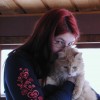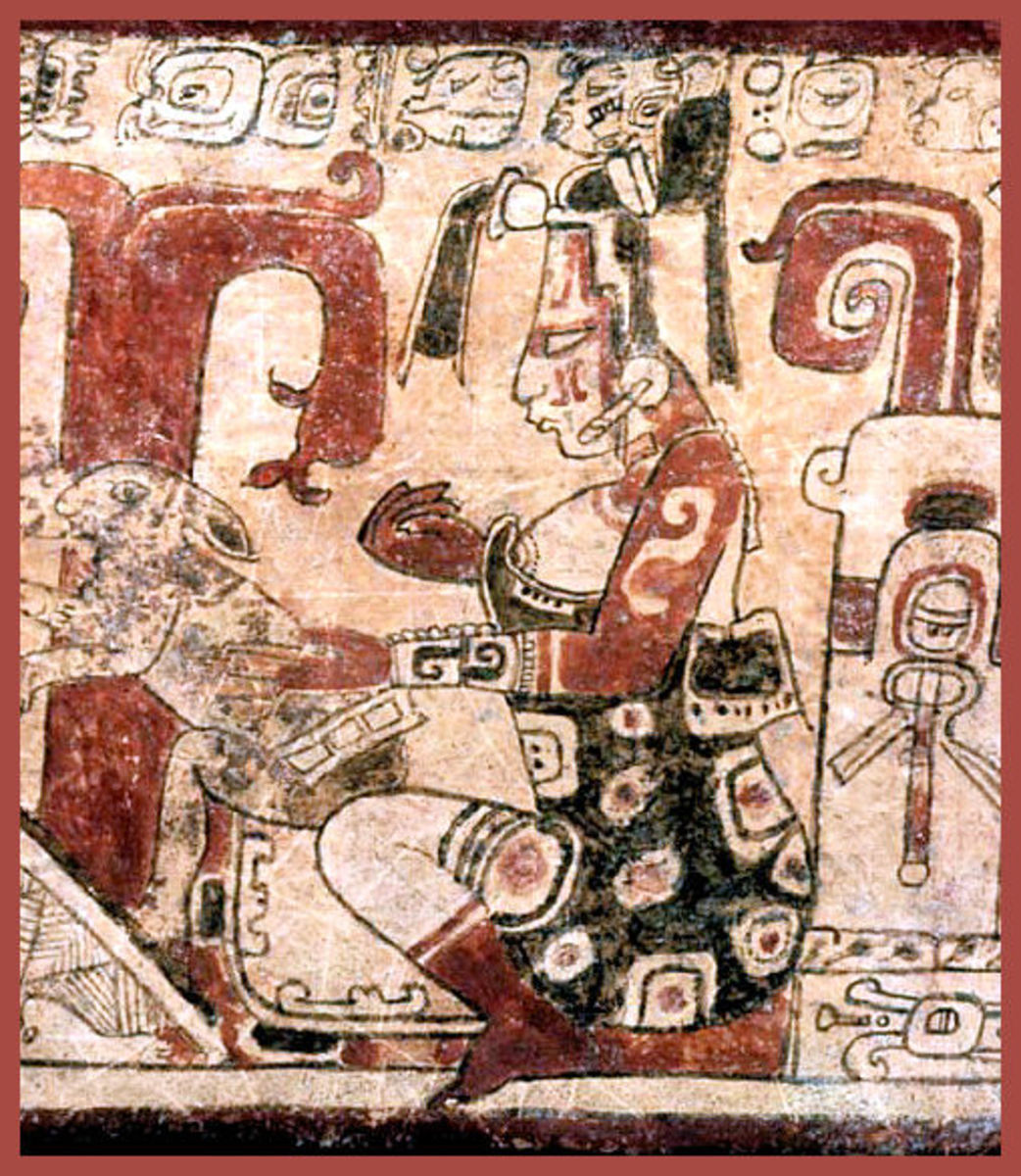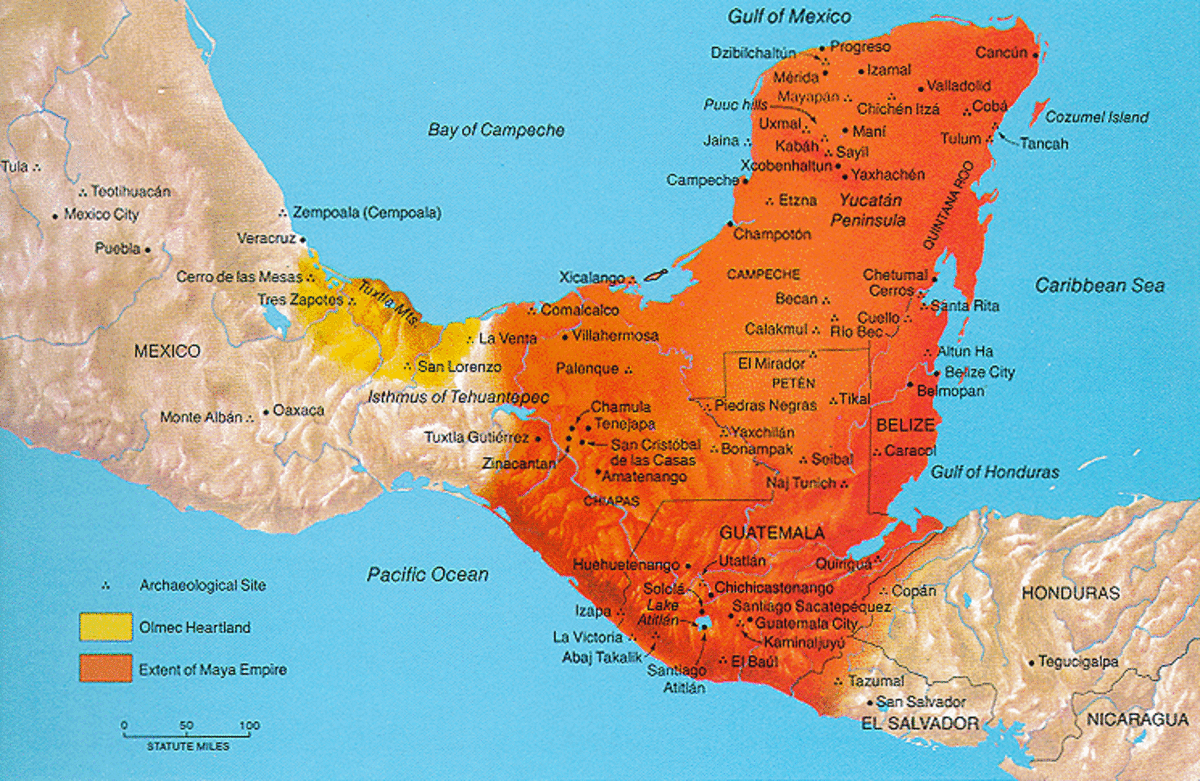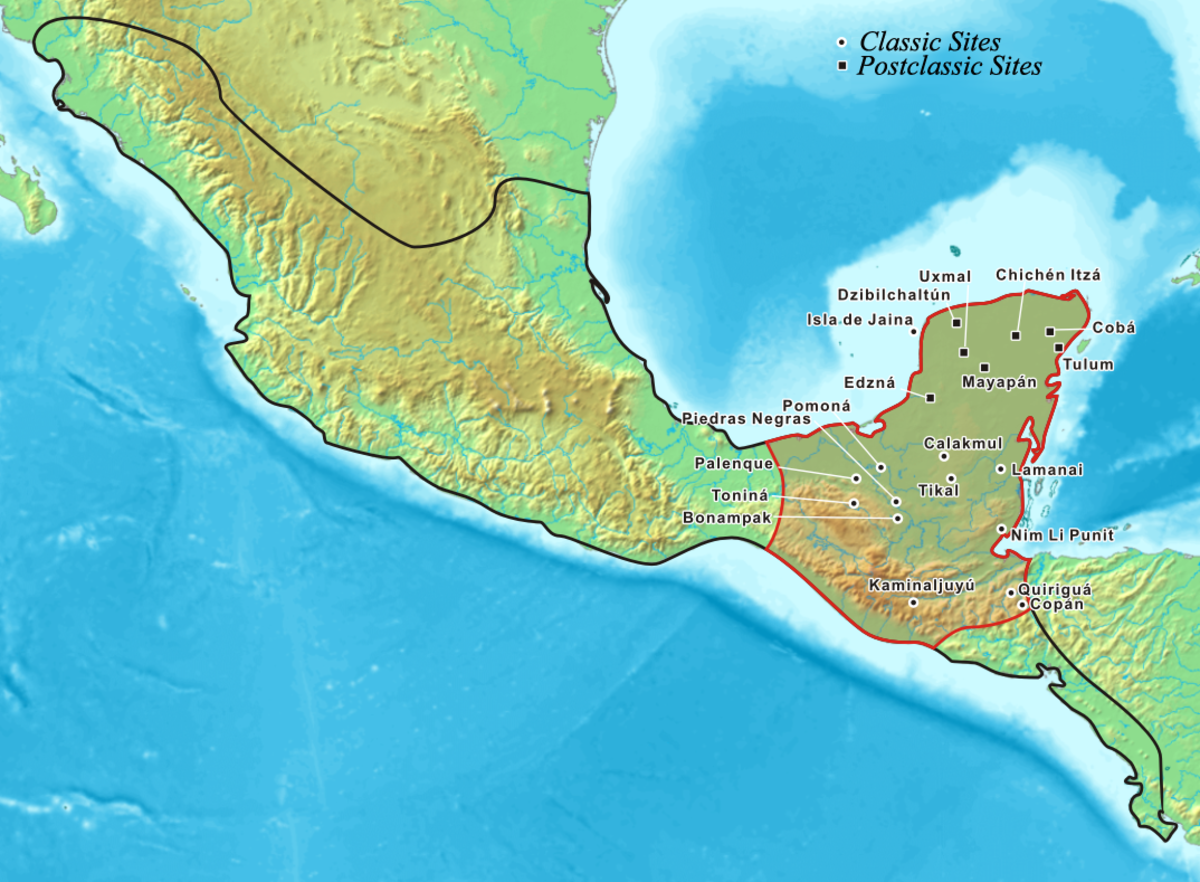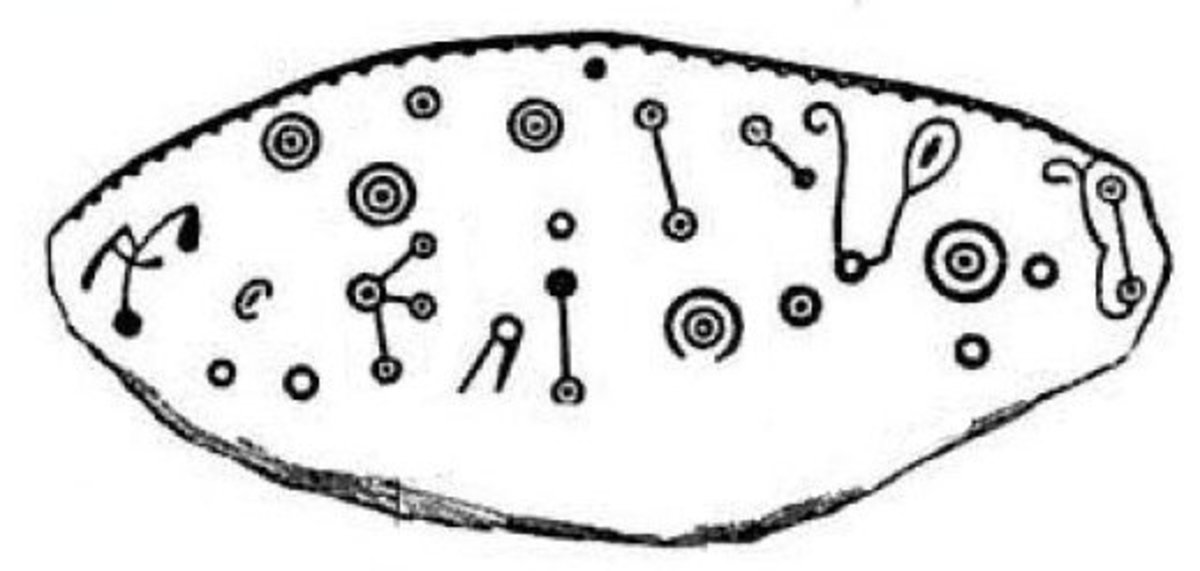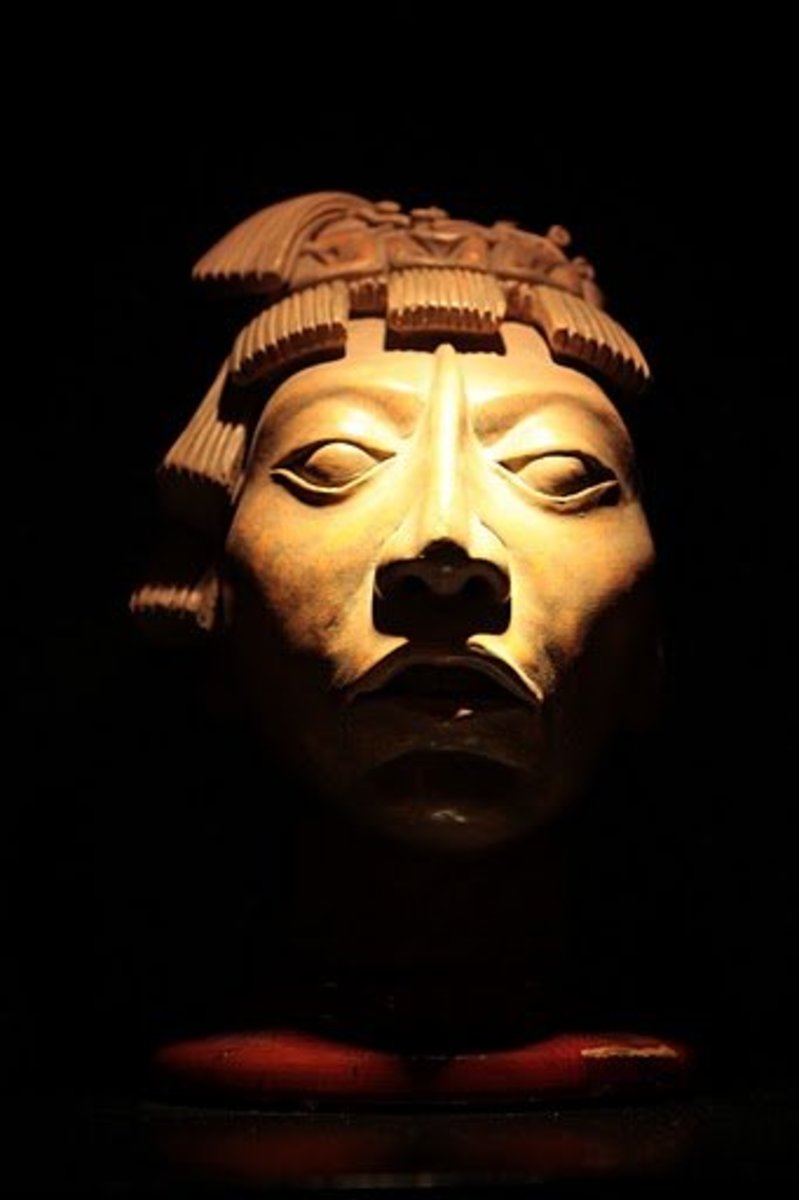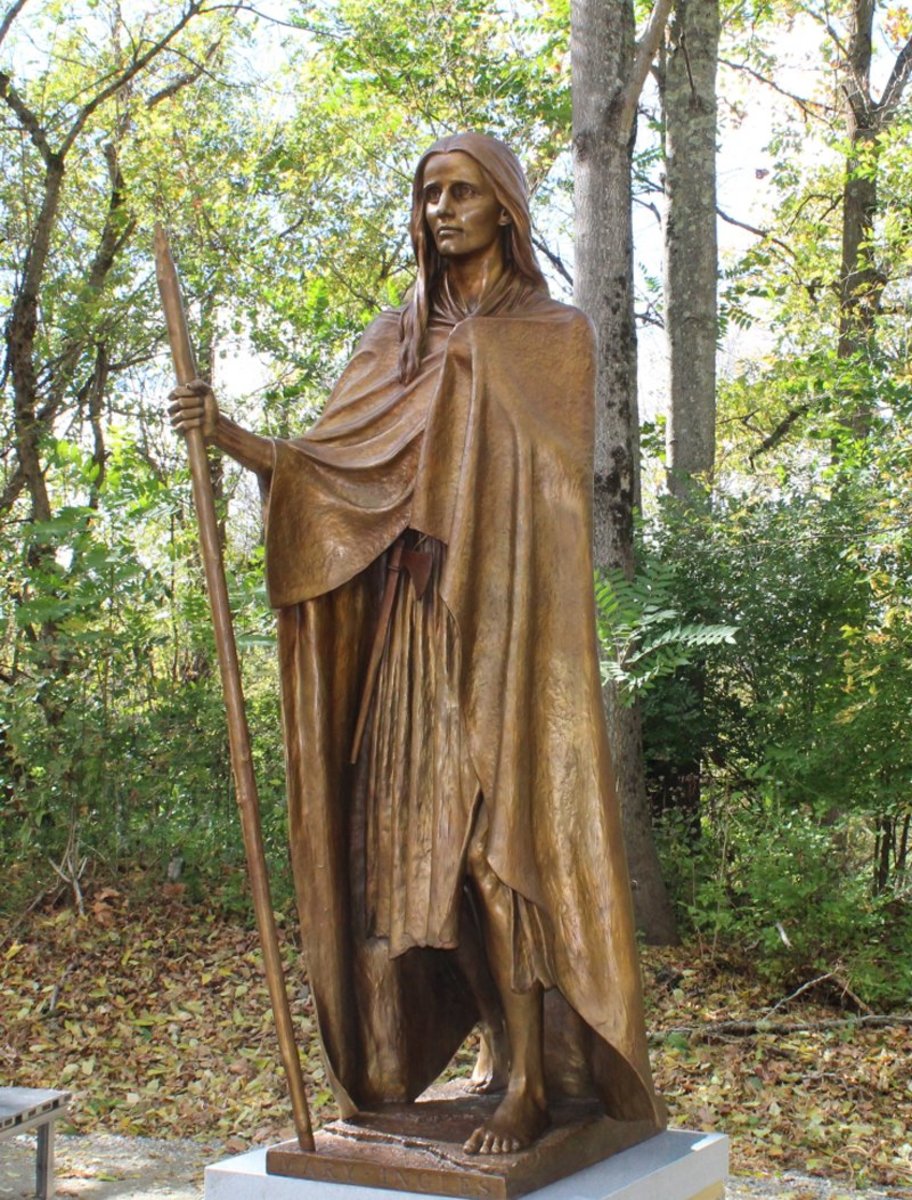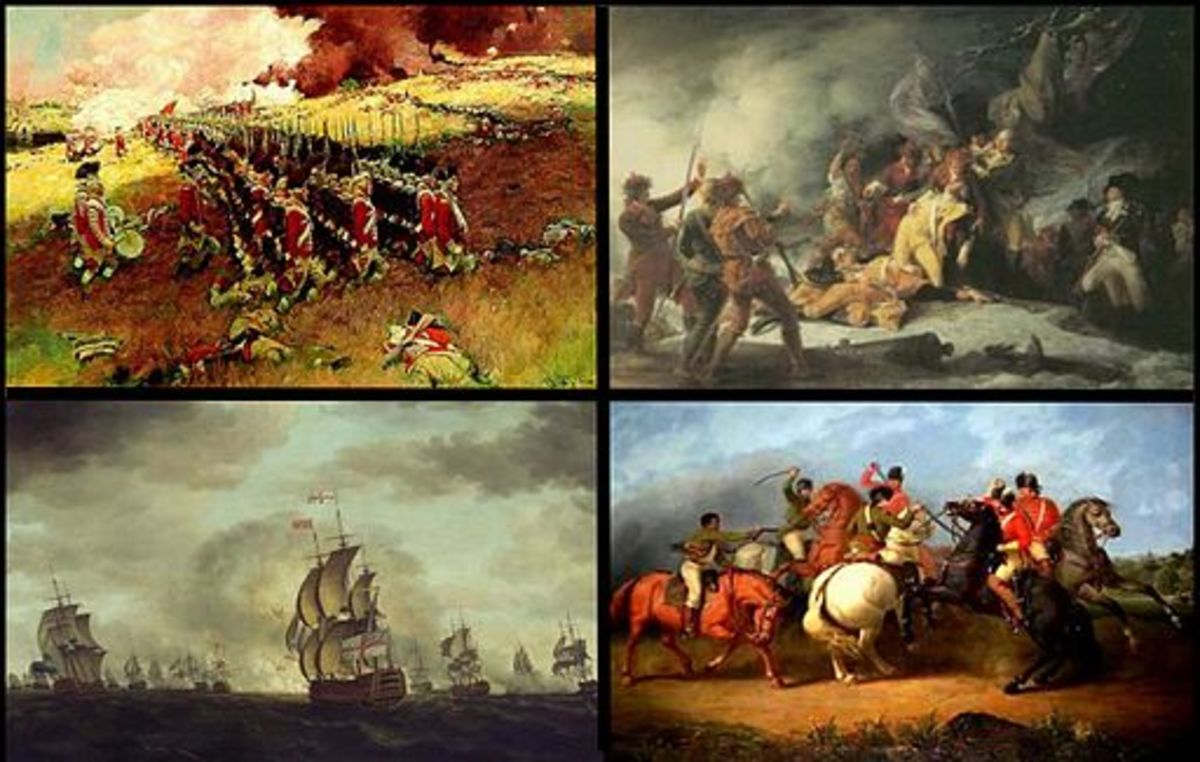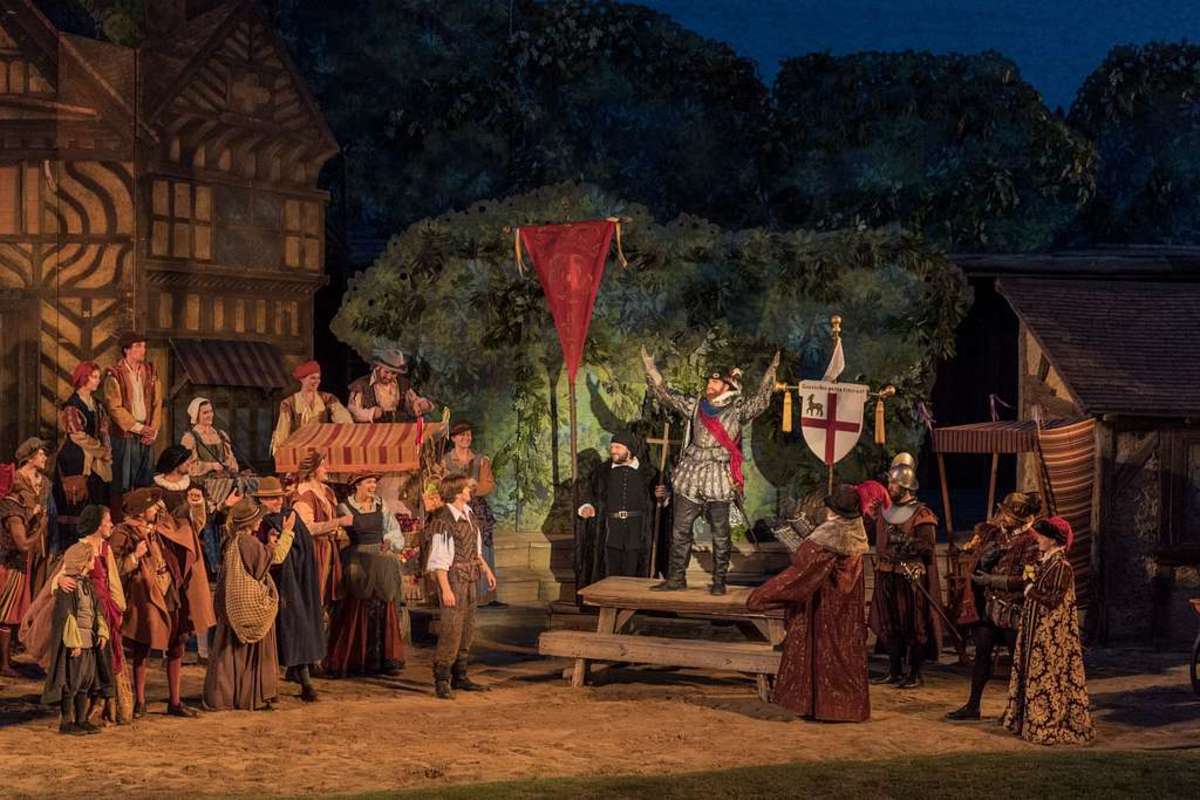- HubPages»
- Education and Science»
- History & Archaeology»
- History of the Americas
The Popol Vuh: The Mayan Story of Creation
The Quiche Maya Book of Counsel
During the approach to the mythological "end of the Mayan calendar" in 2012 there was a lot of chatter about the possible end of the world. I didn't see anyone ask the actual Maya what their opinion of these theories are, but I would imagine they were unconcerned. According to the Maya, the world has been destroyed and remade four times before. The stories of these creations have been written in a book known as the Popol Vuh . An interesting and complex document, it reveals much about Mayan society and cultural values as well as telling the story of creation.
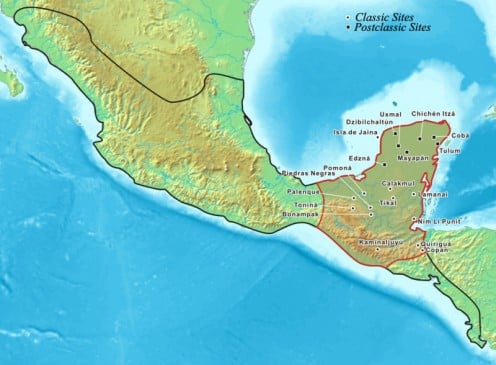
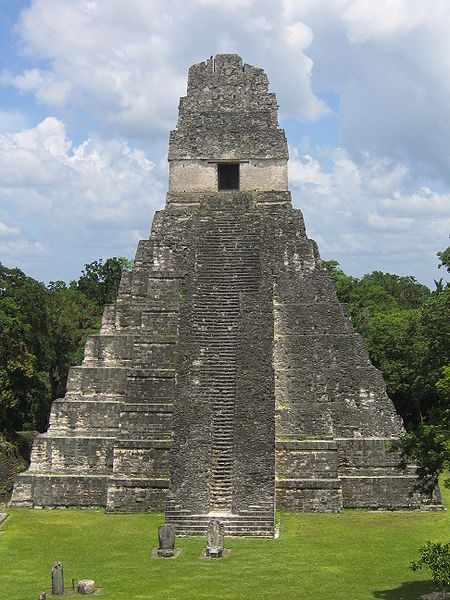
Ancient Origins
The Maya are a Mesoamerican people primarily inhabiting the Yucatan peninsula of Mexico. Archaeological evidence indicates they established their civilization around 2000 B.C. with the height of their empire between 250 - 900 A.D. The Maya were influenced by the many other peoples inhabiting central America and in turn were the primary influence for later empires including the Toltecs and the Aztecs. Although they retreated from power, the Mayan people endured and still exist today along with their language and many cultural traditions. The Pre-Columbian Maya were responsible for building great stepped pyramids and other architectural wonders, developing irrigation and farming techniques, astronomy and a written language.
Often compared to Egyptian heiroglyphics, Mayan is a logosyllabic language composed of over 1000 glyphs. Much of the language and documentation was lost after the arrival of the Spanish in the New World, who had little interest in native culture. The Popol Vuh is a historic document, not an archaeological one. There is only one known copy, which currently resides in the Newberry Library of Chicago. It was written in Quiche Maya between 1554-1558 A.D. and translated into Spanish by a monk named Father Ximenez from 1701-1703. The stories were otherwise passed through oral tradition, so although the Popol Vuh is now considered the definitive version of Mayan mythology, each tribe probably tells the stories differently.
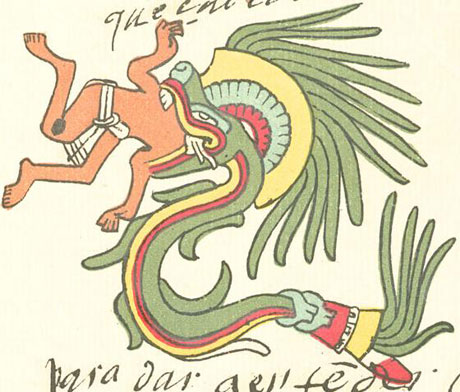
The Gods and Creations
The Popol Vuh tells the story of the four creations of the world and the gods and heroes that were involved. In each creation, an event triggers the destruction of that world and transformation of it's creatures into the new world. Before I talk about the creations I want to introduce you to some of the important characters in Mayan mythology.
- Quetzal or Quetzalcoatl [ket-zul-co-ot-ul] - the serpent or god of water. He is the primary god of good, a king and also a messenger.
- Heart of Sky/Heart of Heaven - the embodiment of the heavens, an adviser and creator
- Xpiyacoc and Xmuxane - grandfather and grandmother, matchmaker and midwife
- Seven Macaw - a troublemaker and pretender to power
- The Hero Twins, Hunahpu and Xbalanque, prototypical heroes and grandsons of Xpiyacoc and Xmuxane. They are also gamblers and ball players.
- Lords of Xibalba, the underworld, tricksters and gamblers
The First Creation
To quote another mythological origin story, in the beginning Sky and Water learn to talk, think and speak. They bring forth the Earth. First they create wild animals who can not talk or praise their creators, so they are sent to the forests to be hunted and eaten. Next, people are created out of mud, but these people are flimsy and dissolve in water and can not praise their makers. Heart of Heaven and Quetzal consult and create Xpiyacoc and Xmucane to help them. Together they create people out of wood, but these people have no hearts and minds. They destroyed their own animals and belongings. Sadly, Heaven and Water decide to destroy and start over by sending a flood. The mud people are dissolved but a few wood people climb trees and are transformed into monkeys in the next creation.
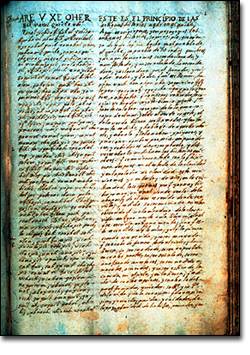
The Second Creation
In the second creation Seven Macaw rises to power. He claims to be the Sun and glorifies himself. The Hero Twins are sent to defeat him and do so by shooting him with a blowgun, and tricking him into giving up his glory. He and his wife perish and become the Big and Little Dipper constellations. Their descendants become scarlet macaws, except for two of their sons.
Cipacna (the alligator) and Earthquake seek to reclaim their father's glory. Cipacna claims he is the maker of the earth and slays 400 boys, the gods of alcoholic drink. The boys are transformed into the Pleiades. Earthquake claims he can bring down the sky. The Hero Twins trick him and bury him in mud, but the damage is done. Darkness descends on this creation.
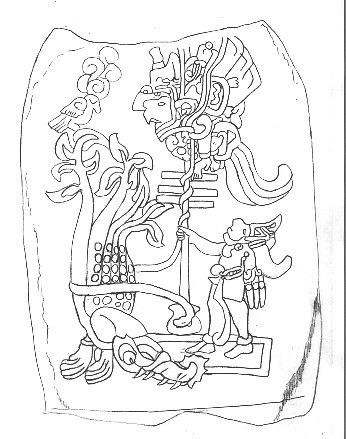
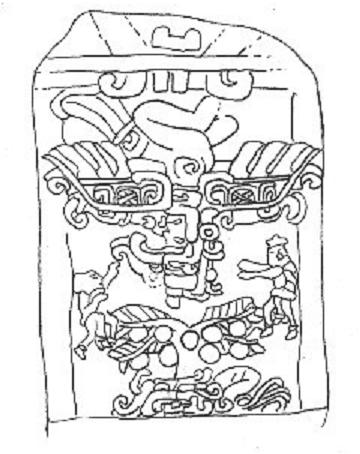
The Third Creation
The story of the third creation is much more complex than the others. It begins with the story of the Hero Twins' ancestry and birth in a world of darkness.
One Hunter and Seven Hunter are the sons of Xpiyacoc and Xmucane. They are summoned by the Lords of Xibalba to play ball. However, the two Hunters make many mistakes in their journey. They choose the wrong road, mistake wooden mannequins for the Lords and do not know their names, smoke cigars in the House of Darkness and let their torches burn out. As a result, the brothers are sacrificed and buried at the ball court and One Hunter's head is placed in a calabash tree that bears fruit.
Little Blood, the daughter of underworld lord Blood Gatherer, comes to pick fruit from the tree and One Hunter's head speaks to her and impregnates her with his saliva. Six months later, Blood Gatherer is angry to see Little Blood's pregnancy and when she swears she has not had sex he demands a sacrifice. She is saved by bats who substitute a tree gum heart for her own and Little Blood escapes to the earth's surface. When Little Blood seeks refuge with Xmucane, she is forced to prove she is not a fornicator by magically gathering a net full of maize from a single stalk of corn.
On the side of a mountain she gives birth to Hunahpu (Hunter) and Xbalanque (Jaguar Deer). They are not wanted by their extended family and grow up as hunters. They eventually get revenge on their cousins by turning them into spider monkeys. They also trick their grandmother and recover their father and uncle's ball playing gear so they can become great ball players.
As a result, the Lords of Xibalba summon the twins to play ball in the underworld. Their mother and grandmother fear they will meet the same fate of their father and uncle, but the Twins are not tricked. They choose the right road, learn the names of the Lords and survive the House of Darkness.
The ball game itself is a huge affair. The Lords insist on using a skull containing a hidden knife for a ball but the twins manage to substitute their own rubber one. They allow the Lords to win in order to learn the secrets of their trials. Hunter loses his head in the House of Bats but another is fashioned for him from a calabash by Heart of Sky. When the Twins return to the ball court, Hunter's head is used as the ball and they manage to switch it back to his body and win the game. The Lords built a great fire to their victory and try to trick the Twins into falling in it. Instead, the Twins jump in, sacrificing themselves. They reappear as entertainers who can control fire and delight the Lords of Xibalba by burning and restoring houses. The Lords demand the Twins perform the trick on themselves, so the Twins sacrifice the Lords - but do not bring them back. Thus only the worthless, guilty, violent and wretched will be condemned to Xibalba from then on. The darkness duly defeated, the true Sun appears, beginning the next creation.
The Fourth Creation
With the true sun in place, our own creation comes into existence. Quetzal and Heaven create humans from maize and water. These humans show proper deference to their creators and care for the world around them. They grow plentiful on the earth. They are warned to behave and honor the gods but otherwise left on their own.
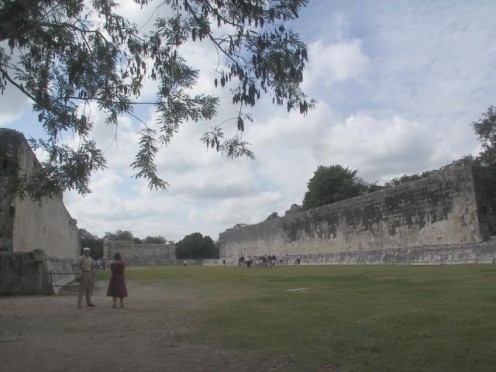
Lessons from the Popol Vuh
The Popol Vuh has some similarities to other civilizations mythologies - a flood, heroes, an underworld and lessons to be learned. One of the most important is to honor the creators and gods, as well as respecting one another. Animals are given as gifts to humans but warnings are given as to treating them well. The power of mind, cleverness and trickery is a virtue, along with empathy. A balance with the natural world is desired. But one thing that is different is the hope engendered by the multiple creations. Unlike most other mythologies which warn of eternal destruction and damnation for transgressions, the Maya believe that a broken world can be transformed and redeemed, including it's ungrateful creations. This belief lends a certain strength in the dark times their people have endured from the loss of empire to the Spanish conquest to the erosion of native rights and splintering of Central American politics. It is a strength that any culture could use when faced with the difficult questions of modern life and the fear of the end of all that we know.
